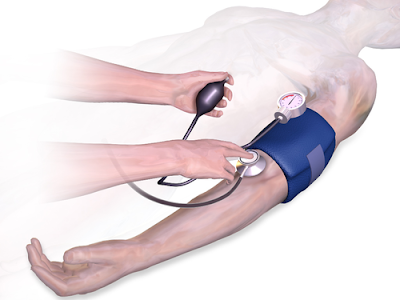The Truth About the Onion Soup Diet: Does It Really Work for Weight Loss?
The onion soup diet is a short-term weight loss plan that claims to help people lose up to 5 kilograms (11 pounds) in a week. While it sounds tempting, the real question is: Does it actually work, and is it safe? Let’s break down the science behind this diet, the role of onions in weight loss, and whether this method is sustainable.
1. How Does the Onion Soup Diet Work?
The onion soup diet is a low-calorie, high-fiber meal plan designed for quick weight loss. The main ingredient, onions, is known for its chromium content, which helps regulate blood sugar and curb cravings.
🔹 The 7-day diet plan consists of consuming onion soup as the primary meal, combined with specific fruits, vegetables, and proteins on different days.
🚨 The Reality Check: This diet forces calorie restriction—a key reason behind the rapid weight loss. However, much of the weight lost in a week is water weight, not fat loss.
2. The Role of Onions in Weight Loss
Onions contain several compounds that contribute to weight management and overall health:
✅ Chromium: Helps Control Appetite
📌 Scientific Evidence: Chromium has been shown to enhance insulin sensitivity, reducing sugar spikes and preventing cravings. A study in the Journal of Trace Elements in Medicine and Biology found that chromium supplementation helped improve glucose metabolism and appetite control.
Source: Journal of Trace Elements in Medicine and Biology
✅ Quercetin: Boosts Metabolism and Reduces Inflammation
📌 Scientific Evidence: Onions contain quercetin, a flavonoid with anti-inflammatory and fat-burning properties. Research published in Molecules suggests that quercetin may increase calorie burn and support fat loss.
Source: Molecules Journal
✅ Fiber: Enhances Digestion and Satiety
Onions are rich in prebiotic fiber, which helps with digestion, gut health, and prolonged satiety. Fiber slows down digestion, keeping you fuller for longer and reducing overall calorie intake.
📌 Scientific Evidence: A study in The American Journal of Clinical Nutrition found that higher fiber intake was linked to reduced body weight and fat accumulation.
Source: American Journal of Clinical Nutrition
3. The Onion Soup Diet Plan: What You Can Eat
Here’s what the 7-day plan looks like:
- Day 1: Unlimited onion soup + fruit (except bananas).
- Day 2: Onion soup + vegetables (except starchy ones like potatoes).
- Day 3: Onion soup + both fruits and vegetables.
- Day 4: Onion soup + milk + bananas.
- Day 5: Onion soup + tomatoes + 250g of lean beef.
- Day 6: Onion soup + chicken or fish + vegetables.
- Day 7: Onion soup + fruit juice + vegetables + brown rice.
🔹 Caloric Intake: This diet drastically reduces calorie consumption, which is why people lose weight quickly.
🚨 Major Issue: A diet that restricts too many food groups for an extended period can lead to nutrient deficiencies.
4. Will You Actually Lose Fat or Just Water Weight?
Most of the weight lost on very low-calorie diets comes from:
❌ Water Loss – Restricting carbs and calories leads to glycogen depletion, which holds water.
❌ Muscle Loss – Without enough protein, the body burns muscle tissue, which lowers metabolism.
✔️ Fat Loss (Minimal) – Some fat may be burned, but sustainable fat loss requires more than just eating soup.
📌 Scientific Evidence: Studies on crash diets, like this one, show that initial weight loss is mostly water and muscle, rather than fat.
Source: Obesity Reviews
5. The Downsides of the Onion Soup Diet
🚨 ⚠️ Major Problems with This Diet:
❌ Lacks Essential Nutrients: You’re missing key macronutrients like healthy fats and enough protein.
❌ Slows Metabolism: When you eat too few calories, your body lowers metabolic rate, making long-term weight loss harder.
❌ Leads to Rebound Weight Gain: The moment you go back to eating normally, water weight returns, and you might gain more weight due to a slower metabolism.
❌ Potential Digestive Issues: High onion consumption can lead to gas, bloating, and stomach discomfort.
📌 Scientific Evidence: Studies show that low-calorie crash diets often lead to weight regain after stopping the diet.
Source: New England Journal of Medicine
6. A Better Alternative: Sustainable Fat Loss
If you want to lose fat in a sustainable way, here’s what actually works:
✅ Increase Protein Intake
Protein preserves muscle and keeps metabolism high.
Best sources: Eggs, chicken, fish, tofu, legumes.
📌 Scientific Evidence: A study found that higher protein intake increases fat loss while preserving muscle mass.
Source: American Journal of Clinical Nutrition
✅ Eat Fiber-Rich Vegetables (Including Onions!)
Vegetables promote fullness and gut health while keeping calories low.
✅ Strength Training & Cardio
Weight training preserves muscle, while HIIT workouts increase calorie burn.
📌 Scientific Evidence: Strength training has been shown to increase fat loss and metabolism compared to dieting alone.
Source: Sports Medicine Journal
7. Final Verdict: Is the Onion Soup Diet Worth It?
🔴 Short-Term Solution: YES, you will lose weight quickly (mostly water weight).
🔴 Long-Term Fat Loss: NO, it’s not sustainable and may slow metabolism.
🔴 Health Impact: HIGH RISK for nutrient deficiencies, low energy, and muscle loss.
If you're looking for a quick way to drop water weight for an event, this diet might work temporarily. But if permanent weight loss is your goal, a balanced diet with proper nutrition and exercise is the way to go.
The Best Alternative to Crash Dieting:
1️⃣ Focus on whole foods – Lean proteins, healthy fats, and fiber-rich vegetables.
2️⃣ Strength train 3x per week – This prevents muscle loss and keeps metabolism high.
3️⃣ Include onions & other metabolism-boosting foods naturally in your diet.
4️⃣ Avoid extreme calorie deficits – Aim for a moderate caloric deficit for sustainable weight loss.
Terrell Hartley
Facebook.com/herbsofra
Instagram.com/herbs_of_ra




Comments